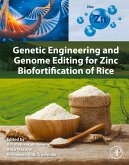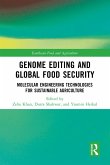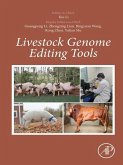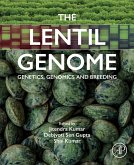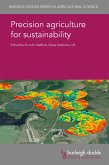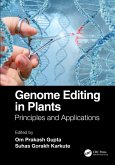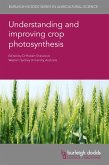"Many authors in the proposed book are leaders in this field of research. The topic of application of genome editing in crops is covered very broadly, representing an impressive description of the state-of-the art."Professor Beat Keller, University of Zurich, Switzerland
"With its breadth of coverage and the expertise of the distinguished international team of contributing authors, this comprehensive guide to genome editing for precision crop breeding promises to be an ideal reference for researchers and graduate students and those working in agriculture and plant biotechnology around the world."Professor Caixia Gao, Institute of Genetics and Developmental Biology - Chinese Academy of Sciences, China
Genome editing is rapidly transforming plant research. The technique offers unparalleled precision in breeding without the need to introduce foreign DNA into plants. CRISPR/Cas systems have established themselves as the leading technique in genome editing.
Genome editing for precision crop breeding takes stock of the wealth of research on these techniques and their potential in crop breeding. Chapters in this volume review advances in techniques such as TALENS and zinc finger nucleases, double-strand break repair techniques, insertion-based genome edits, base editing, guide RNAs and gRNA/Cas9 constructs. This collection also surveys applications of gene editing in improving key traits in key cereal crops including barley, maize and sorghum as well as brassicas, tomatoes and perennials.
With its distinguished editor and international team of expert authors, Genome editing for precision crop breeding will be a standard reference for university and other researchers involved in crop breeding, government and other agencies involved in regulating advances in crop breeding (such as genetic modification), crop breeding companies and farmers interested in the latest breeding techniques.
Dr Matthew R. Willmann was Director of the CALS Plant Transformation Facility (PTF) at Cornell University, USA from 2016-2021. The Facility produces transgenic and CRISPR/Cas9 genome-edited plants, and develops improved transformation and genome editing techniques. With over 25 years of experience in plant science research, Dr Willmann has published widely in such areas as gene editing and is on the editorial boards of The CRISPR Journal and Frontiers in Genome Editing: Genome Editing in Plants, which promote research in this important and growing area. Dr Willmann joined the plant biotech company Pairwise as Delivery Technology Lead in early 2021.
"With its breadth of coverage and the expertise of the distinguished international team of contributing authors, this comprehensive guide to genome editing for precision crop breeding promises to be an ideal reference for researchers and graduate students and those working in agriculture and plant biotechnology around the world."Professor Caixia Gao, Institute of Genetics and Developmental Biology - Chinese Academy of Sciences, China
Genome editing is rapidly transforming plant research. The technique offers unparalleled precision in breeding without the need to introduce foreign DNA into plants. CRISPR/Cas systems have established themselves as the leading technique in genome editing.
Genome editing for precision crop breeding takes stock of the wealth of research on these techniques and their potential in crop breeding. Chapters in this volume review advances in techniques such as TALENS and zinc finger nucleases, double-strand break repair techniques, insertion-based genome edits, base editing, guide RNAs and gRNA/Cas9 constructs. This collection also surveys applications of gene editing in improving key traits in key cereal crops including barley, maize and sorghum as well as brassicas, tomatoes and perennials.
With its distinguished editor and international team of expert authors, Genome editing for precision crop breeding will be a standard reference for university and other researchers involved in crop breeding, government and other agencies involved in regulating advances in crop breeding (such as genetic modification), crop breeding companies and farmers interested in the latest breeding techniques.
Dr Matthew R. Willmann was Director of the CALS Plant Transformation Facility (PTF) at Cornell University, USA from 2016-2021. The Facility produces transgenic and CRISPR/Cas9 genome-edited plants, and develops improved transformation and genome editing techniques. With over 25 years of experience in plant science research, Dr Willmann has published widely in such areas as gene editing and is on the editorial boards of The CRISPR Journal and Frontiers in Genome Editing: Genome Editing in Plants, which promote research in this important and growing area. Dr Willmann joined the plant biotech company Pairwise as Delivery Technology Lead in early 2021.
Dieser Download kann aus rechtlichen Gründen nur mit Rechnungsadresse in A, D ausgeliefert werden.



